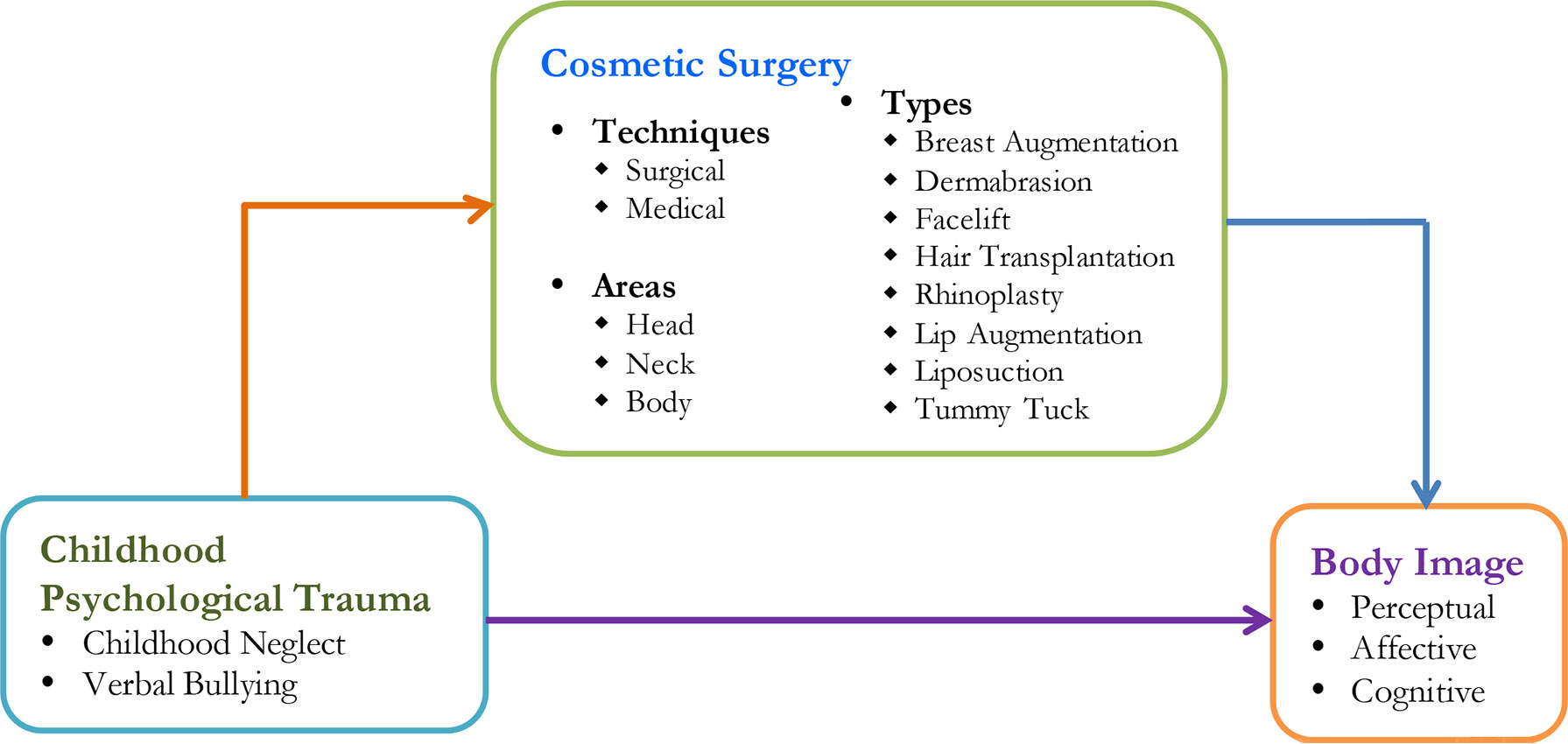Invasive Surgery Psychological Screening: Why It Is Needed to Prevent Post-Surgery Complications
Invasive Surgery Psychological Screening: Why It Is Needed to Prevent Post-Surgery Complications
Blog Article
How Mental Evaluations Improve Plastic Surgery Outcomes
The combination of mental analyses into the plastic surgery process is progressively recognized as a critical consider attaining optimum outcomes. By extensively evaluating patients' psychological and emotional states, cosmetic surgeons can obtain important understandings into their inspirations, expectations, and potential emotional obstacles. This thorough understanding not just informs surgical choices but likewise cultivates a transparent dialogue between patient and supplier. As we explore the subtleties of this method, the implications for both person contentment and long-term emotional wellness become noticeable, increasing essential questions concerning its role fit the future of cosmetic surgery.
Understanding Mental Assessments
Mental assessments in the context of cosmetic surgical procedure function as critical tools to examine a person's emotional and psychological readiness for surgical treatment. These assessments are developed to identify underlying mental problems, such as body dysmorphic disorder, depression, or anxiousness, which might influence a person's expectations and satisfaction with medical end results.
The process commonly involves structured interviews, standard sets of questions, and scientific evaluations administered by experienced mental health specialists. By systematically exploring a patient's inspirations for seeking cosmetic surgical treatment, these evaluations aid to determine whether the wish for surgical treatment stems from reasonable self-improvement objectives or from deeper emotional problems.
Additionally, psychological analyses can help with informed decision-making by ensuring that clients totally understand the possible dangers and advantages connected with cosmetic procedures. This understanding is crucial for lining up person expectations with practical outcomes, ultimately adding to an extra satisfying surgical experience.
On top of that, these analyses can recognize patients who might benefit from preoperative emotional support or therapy, thereby enhancing their overall health. Thus, comprehending mental analyses is vital for optimizing both the medical and psychological results of cosmetic surgical treatment.

Advantages for Patients
The application of emotional assessments in cosmetic surgical treatment provides numerous advantages for people, significantly improving their overall experience. These analyses give an organized possibility for individuals to explore their motivations for seeking surgery. Comprehending their hidden needs can cultivate even more informed decision-making, decreasing the possibility of remorse post-surgery.

Furthermore, psychological analyses can help with much better communication in between patients and their surgeons. By articulating worries and goals much more plainly, clients can develop practical objectives, leading to a much more satisfactory medical experience. Additionally, these analyses can improve patient-surgeon connection, cultivating count on and cooperation throughout the surgical journey.
Effect On Surgical End Results
How do mental assessments influence medical results in cosmetic treatments? Psychological examinations work as vital devices in identifying patients' mental health standing, assumptions, and inspirations before surgical treatment. cosmetic surgery psychological checks. By analyzing factors such as body photo understanding and emotional well-being, these assessments can predict exactly how people will certainly react to cosmetic interventions
Research indicates that people with sensible expectations are more probable to report satisfaction post-surgery. On the other hand, those with underlying psychological concerns, such as body dysmorphic disorder, may experience dissatisfaction despite the procedural outcome. By identifying these issues early, practitioners can take care of person expectations effectively and reduce the probability of problems or regret after surgical treatment.
Furthermore, mental evaluations can improve the surgeon-patient partnership, fostering open communication and trust fund. This connection is important for making sure that patients really feel comfortable reviewing their objectives and worries, ultimately bring about much more positive surgical end results.
Tailoring Surgical Approaches

For circumstances, a patient displaying indicators of stress and anxiety might take advantage of a more gradual approach, maybe beginning with less invasive treatments before proceeding to a lot more substantial surgical treatments. Alternatively, individuals with a solid feeling of self and sensible assumptions could be suitable prospects for more significant treatments.
In addition, psychological assessments can aid identify patients who may need added support or counseling, specifically if their motivations come from underlying mental concerns. Tailoring surgical methods not just enhances the technological execution of the procedure yet these details likewise cultivates a joint ambience between the specialist and patient, resulting in even more satisfactory results. Ultimately, this personalized method promotes a deeper understanding of the individual's special circumstances, causing an extra unified balance between aesthetic goals and mental health, consequently maximizing the total plastic surgery experience.
Encouraging Long-Term Complete Satisfaction
To advertise long-lasting fulfillment in cosmetic surgical procedure, it is important to establish realistic assumptions and foster open communication in between the surgeon and person throughout the process. Mental evaluations act as a valuable device in this regard, making it possible for cosmetic surgeons to assess a client's motivations, needs, and prospective psychological outcomes. By recognizing a client's psychological and psychological state, specialists can supply tailored referrals that line up with the patient's real aspirations.
In addition, taking part in thorough conversations about the potential dangers, benefits, and constraints of the treatment assists mitigate unrealistic assumptions. cosmetic surgery mental health screening. Individuals who are educated are a lot more most likely to value the outcomes, adding to higher complete satisfaction rates. Constant follow-up after the surgical treatment is additionally essential in strengthening the surgeon-patient connection and attending to any worries that might arise during healing
Additionally, mental analyses can identify people that might go to risk for post-operative frustration, enabling preemptive interventions. Ultimately, the integration of emotional analyses into the plastic surgery process not only improves medical end results but additionally advertises lasting complete satisfaction, guaranteeing that people feel material with their decisions and results as time advances.
Final Thought
In summary, psychological assessments work as an essential element in enhancing plastic surgery end results. By assessing clients' mental and psychological readiness, these assessments promote the recognition of underlying psychological conditions and motivations, leading to more tailored surgical techniques. Furthermore, cultivating open communication in between doctors and patients promotes realistic assumptions and trust, ultimately adding to improved complete satisfaction and long-term emotional wellness following procedures. The integration of emotional assessments into the surgery stands for a critical innovation in patient treatment and outcomes.
The implementation of psychological analyses in cosmetic surgery offers various benefits for people, substantially improving their overall experience.Furthermore, psychological examinations can help determine clients that might need additional support or therapy, specifically if their motivations stem from underlying mental problems. Mental assessments offer as find out here now a valuable tool in this regard, allowing doctors to determine an individual's inspirations, desires, and possible psychological end results. By comprehending a person's emotional and mental state, cosmetic surgeons can supply customized suggestions that straighten with the client's real ambitions.
By reviewing people' emotional and mental preparedness, find this these assessments assist in the recognition of underlying mental problems and inspirations, leading to much more tailored medical approaches.
Report this page